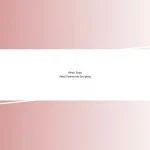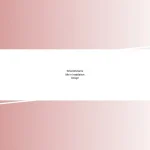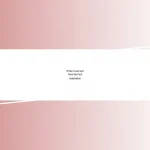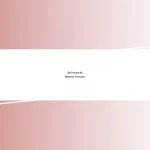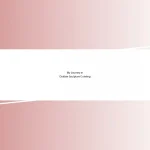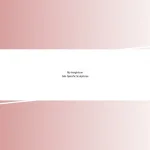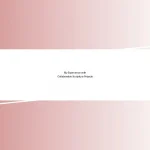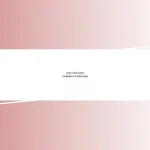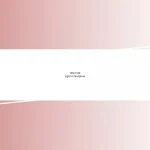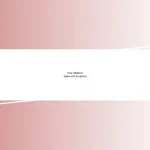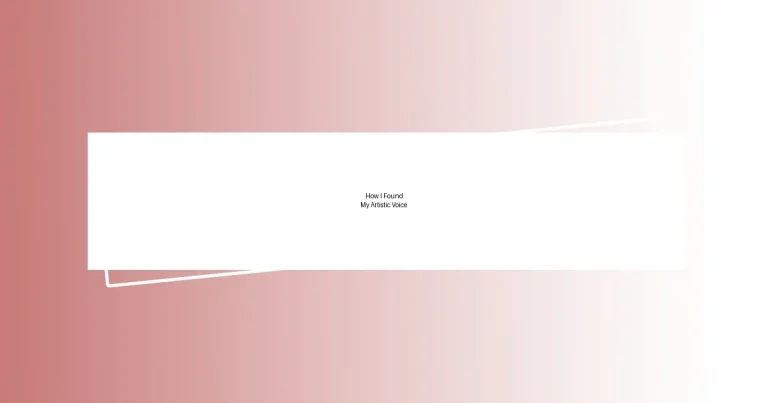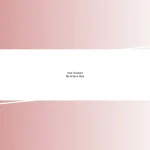Key takeaways:
- Artistic identity is a personal journey shaped by experiences, emotions, and the acceptance of imperfections.
- Influences from music, nature, and other artists can spark new creative directions and deepen emotional expression in artwork.
- Experimenting with various mediums can uncover unique emotional connections and pathways in artistic expression.
- Sharing art builds confidence and fosters growth, as external feedback helps refine one’s artistic voice and perspective.
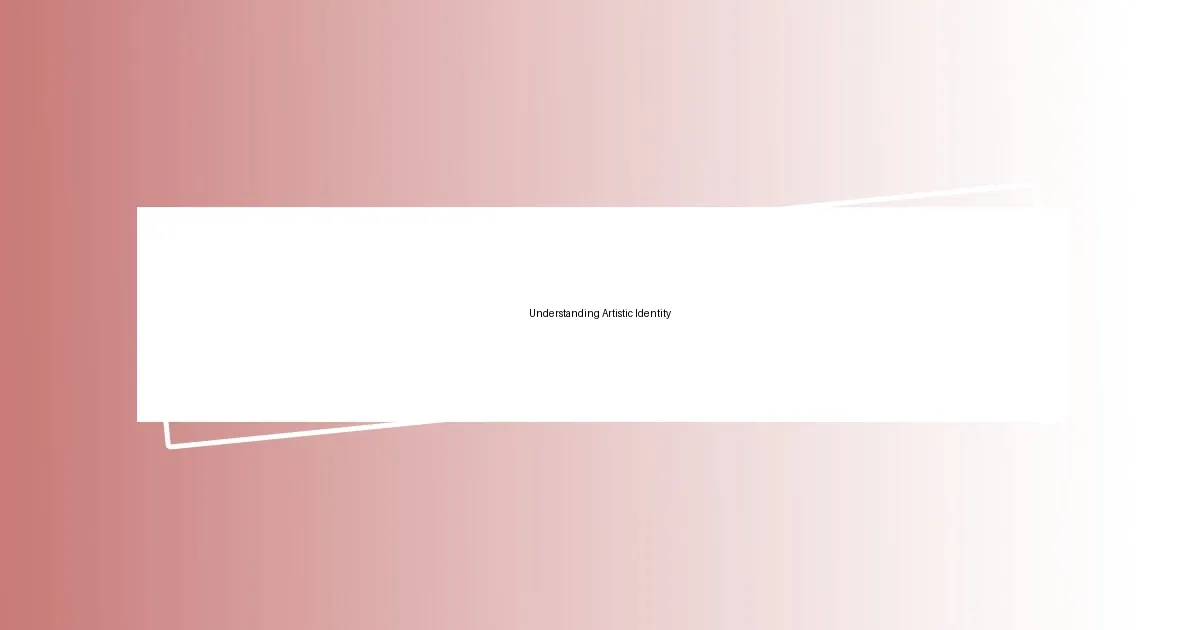
Understanding Artistic Identity
Understanding artistic identity is a deeply personal journey, one where we unravel layers of experiences that shape who we are as creators. I remember the moment I painted a piece that didn’t just reflect my skills but my emotions—an intense expression of joy intertwined with the shadows of doubt. Have you ever had a similar revelation, where your work suddenly felt like a true extension of your inner self?
As I explored various mediums and styles, I began to see artistic identity as a mosaic rather than a singular image. Each piece I created contributed a vital aspect to the whole. This journey was not just about painting, but about discovering my thoughts, beliefs, and the stories that resonated with me. Isn’t it fascinating how our artwork can serve as a visual diary of sorts, capturing the essence of experiences we sometimes struggle to articulate?
In defining artistic identity, we must acknowledge that it evolves with us. I’ve often felt that the more I embraced my imperfections and quirks, the clearer my unique voice became. It makes me wonder—what parts of your own story could unlock a richer connection to your artistry? Allowing yourself the freedom to explore and express those elements is what can transform your work from mere skill into a powerful form of personal expression.
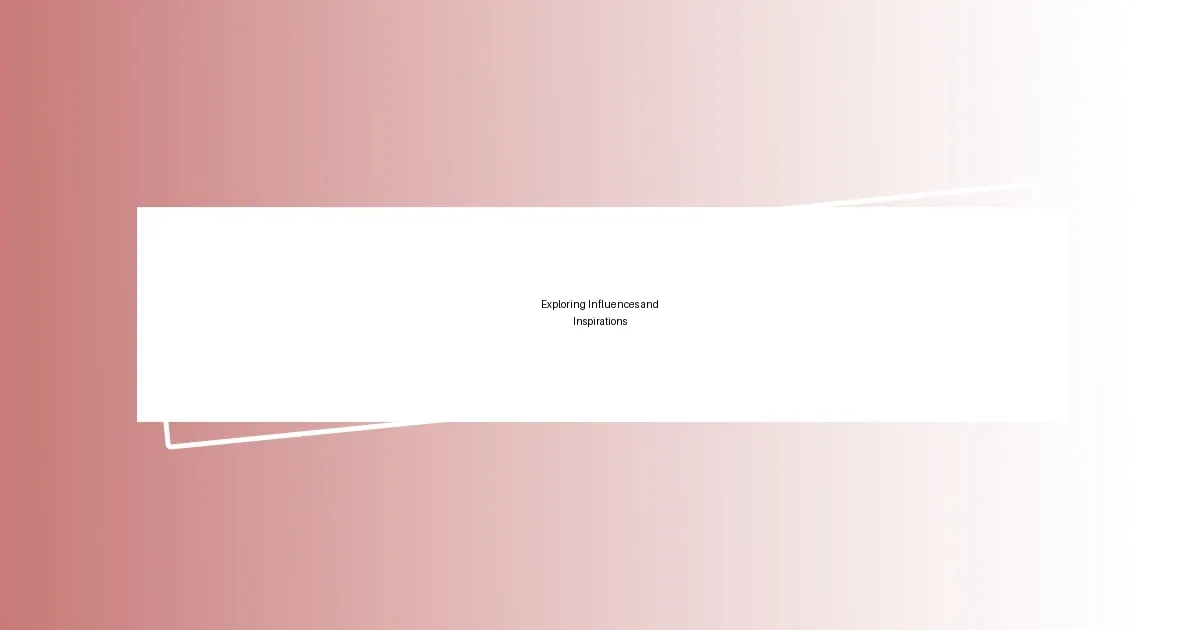
Exploring Influences and Inspirations
As I delved into the world of art, I found that my influences came from unexpected places. A casual conversation with a friend about music sparked a realization: I could inject rhythm and movement into my artwork, creating a dynamic experience for the viewer. Suddenly, I was inspired to blend visual art with the emotional arcs found in my favorite songs, transforming my paintings into vibrant narratives rather than static images.
Throughout this exploration, I discovered the profound impact of nature on my artistic voice. I distinctly recall a hike where the swirling colors of the sunset ignited a spark in me. The hues blended seamlessly, just like the layers of my own experiences. This revelation taught me that inspiration can be found in the simplest moments—whether it’s a fleeting glance at a flower or the laughter shared with friends. What are the small inspirations in your life that you can weave into your creations?
In my artistic journey, I realized that my influences often come from other artists. I vividly remember attending a gallery opening where the raw emotion of the pieces resonated deeply within me. Each artist’s unique story created a sense of belonging—reminding me that we all share a common thread through our experiences. This connection not only inspired me to take risks in my work but also pushed me to embrace my individuality. Have you ever felt that pull to express your thoughts and feelings after being moved by someone else’s creativity?
| Influence Source | Impact on Artistic Voice |
|---|---|
| Music | Introduced rhythm and narrative elements to my artwork. |
| Nature | Showed me that small, everyday moments can serve as powerful inspiration. |
| Other Artists | Encouraged emotional depth while reinforcing the importance of individuality. |
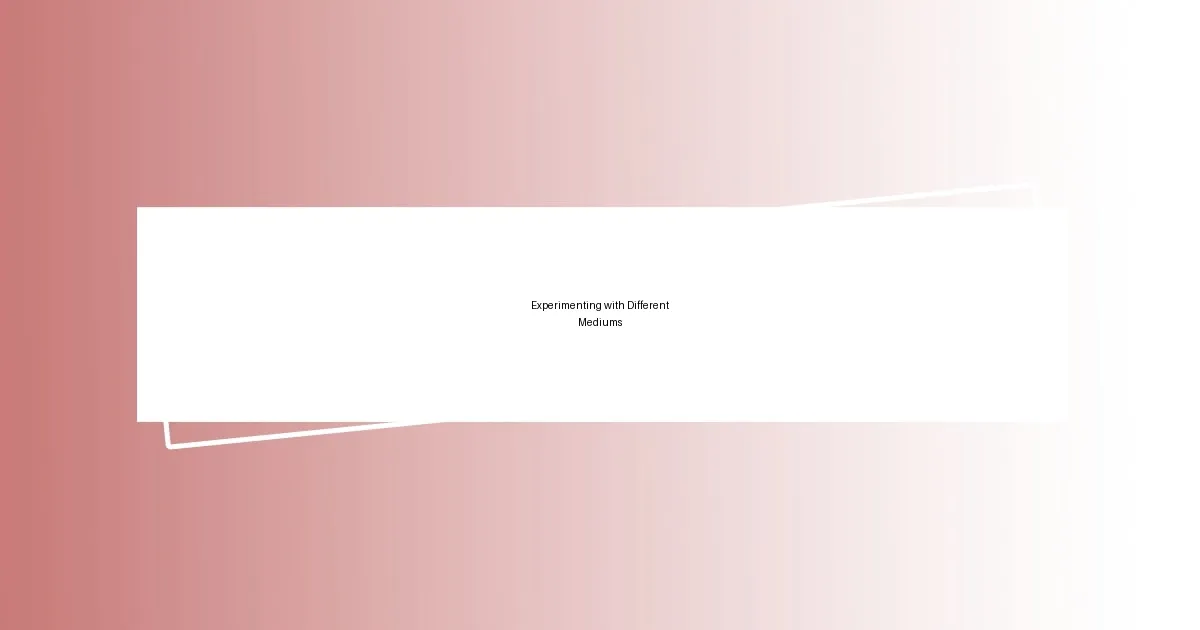
Experimenting with Different Mediums
I remember my first experience with mixed media—it was a chaotic swirl of colors, textures, and materials that initially overwhelmed me. But as I dove deeper, I discovered how different mediums could communicate unique emotions within me. I experimented with everything from collage to watercolor and even digital art. Each shift not only revealed new techniques but also opened pathways that connected directly to my heart. It was shocking to see how something as simple as a piece of string or a splash of acrylic could shift my perspective so dramatically.
Here are some mediums that I found particularly transformative:
- Acrylic Paint: Quick-drying and vibrant, it allowed for layers of experimentation.
- Charcoal: The rawness of charcoal brought a sense of urgency to my sketches, depicting emotions I hadn’t yet expressed.
- Collage: This medium was a revelation; it allowed me to combine various textures and imagery, telling stories in ways I hadn’t imagined.
- Digital Art: The limitless possibilities of digital platforms opened a new realm where I could explore without boundaries.
- Photography: Capture fleeting moments that inspire; it taught me about the beauty in everyday life.
Each medium challenged me and pushed me to explore the narratives I wanted to convey. I often think back to an evening spent experimenting with oil paints. I had underestimated their slow-drying nature, nearly giving up in frustration. But as I applied layer upon layer, the depth of color began to resonate with my emotions, resulting in a piece that felt like a conversation with the canvas. This taught me that patience in the creative process can yield surprising results, revealing parts of my artistic voice I hadn’t yet encountered. What mediums could unveil hidden facets of your own expression?
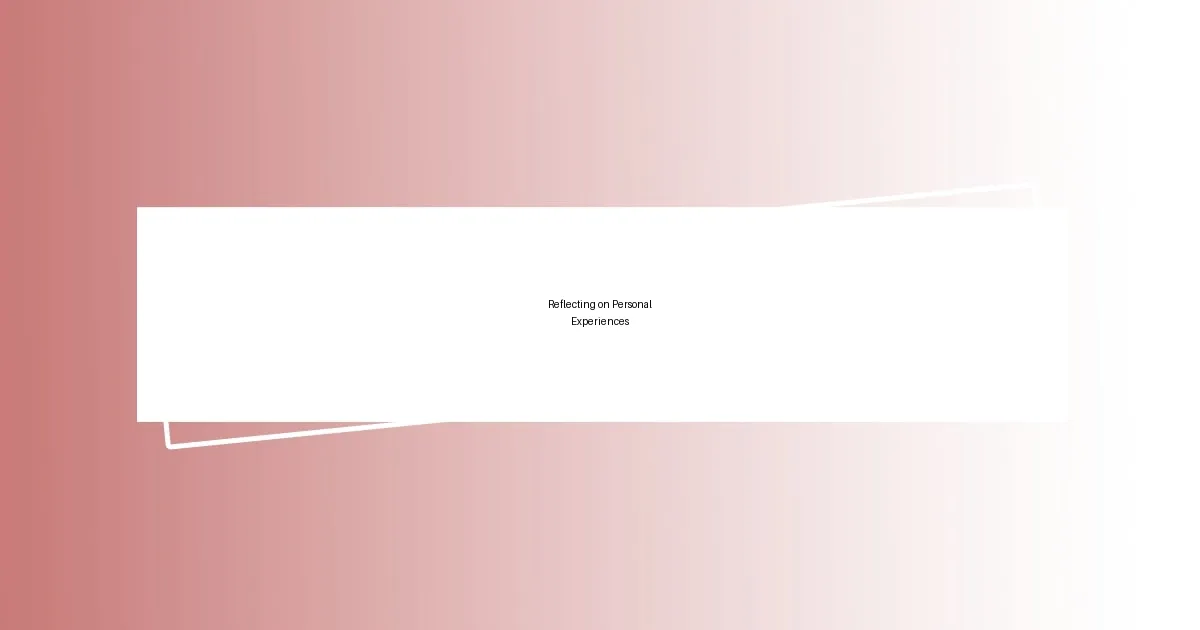
Reflecting on Personal Experiences
Reflecting on my personal experiences has often been a pivotal part of finding my artistic voice. I can recall a moment during my college years when I sat alone in a cramped studio. The silence was deafening, yet it pushed me to confront my own emotional landscape, giving rise to a series of pieces that expressed feelings I hadn’t fully understood until then. It’s fascinating how solitude can become a powerful catalyst for creativity, isn’t it?
There have been numerous instances where life’s challenges served as fodder for my art. I remember vividly, one rainy afternoon, grappling with a sense of loss after a breakup. Instead of wallowing in sadness, I reached for my brushes and let the emotions flow onto the canvas. Each stroke became a cathartic release, allowing me not only to heal but to articulate a complex experience through colors and forms. Have you ever found solace in creativity during tough times?
Sometimes, it’s the fleeting moments that leave a lasting impression on my artistic journey. A conversation with an elderly neighbor one sunny afternoon opened my eyes to the fragility of life. Her stories of love and heartache inspired me to capture life’s raw beauty in my work. This interaction reshaped how I approach storytelling through art, reminding me that even the simplest exchanges can profoundly influence our perspective. What interactions have sparked a shift in your creative process?
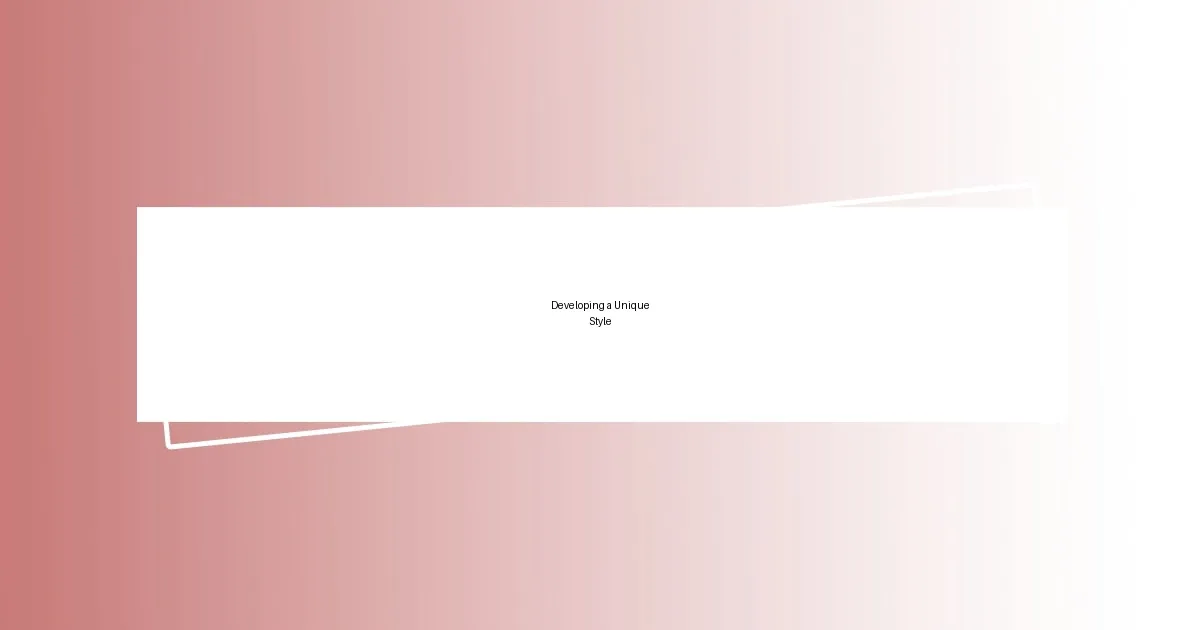
Developing a Unique Style
Finding your unique artistic style is often a journey marked by self-discovery and experimentation. I once decided to embark on a 30-day art challenge, where I explored new themes daily. Some days were exhilarating; others felt like a slog. Yet, that discomfort revealed the essence of what I loved most—combining whimsy with raw emotion. Have you ever felt that spark when trying something new but found it hard to articulate?
One evening, as I sat in my favorite café, I noticed how the light danced off the espresso cups and the way people interacted. I began sketching quickly, capturing the moment in ink as it unfolded. This practice solidified for me how observing the world around us can greatly influence our style. It’s amazing how small details resonate and can be woven into our artistic identity, wouldn’t you agree?
Moreover, I discovered that revisiting past influences helped refine my burgeoning style. After feeling stagnant, I revisited childhood cartoons that once inspired me. I started to embrace that playful aesthetic, layering it with my current palette. The resulting pieces felt both familiar and fresh, as though I was conversing with my younger self. Has looking back ever helped you redefine your own creative path?
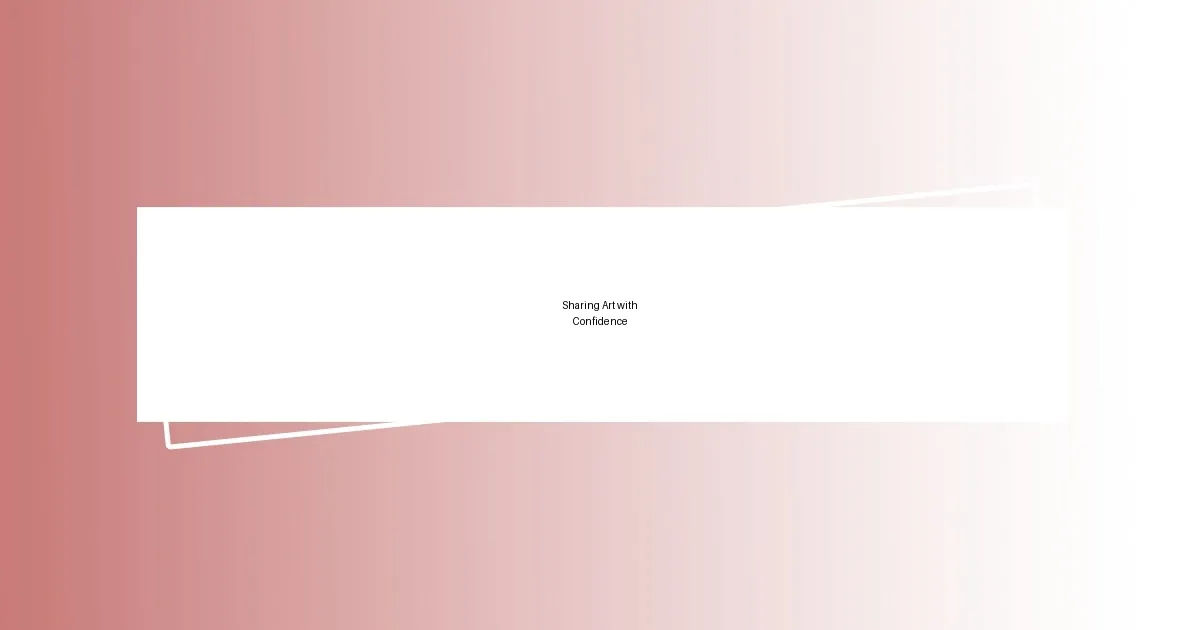
Sharing Art with Confidence
Sharing my art with confidence has been a transformative experience. I remember the first time I showcased my work at a local gallery; my heart raced as people examined my pieces. I felt vulnerable yet exhilarated. In that moment, it struck me that sharing my art wasn’t just about exposing my creations, but also opening a dialogue with viewers—inviting them to interpret and connect with my emotions. Have you experienced that blend of fear and excitement when sharing your work?
I’ve noticed that the more I share, the more I grow. Every comment, whether positive or constructive, helps me refine my voice and vision. For instance, after receiving unexpectedly positive feedback on a piece I considered unfinished, I realized that confidence is built on community. It’s rewarding to witness how others react to my creativity, reminding me that my perspective resonates with them. Have you ever felt encouraged by someone else’s appreciation of your work?
Sharing art confidently also involves embracing rejection and critique. There was a time when I submitted a painting to a competition and didn’t even receive a response. Initially, it stung, but then I reflected on the resilience it cultivated within me. I discovered that every “no” contributes to my confidence, teaching me to separate my worth from external validation. Isn’t that empowering? It’s a reminder that art is as much about the journey as it is about recognition.
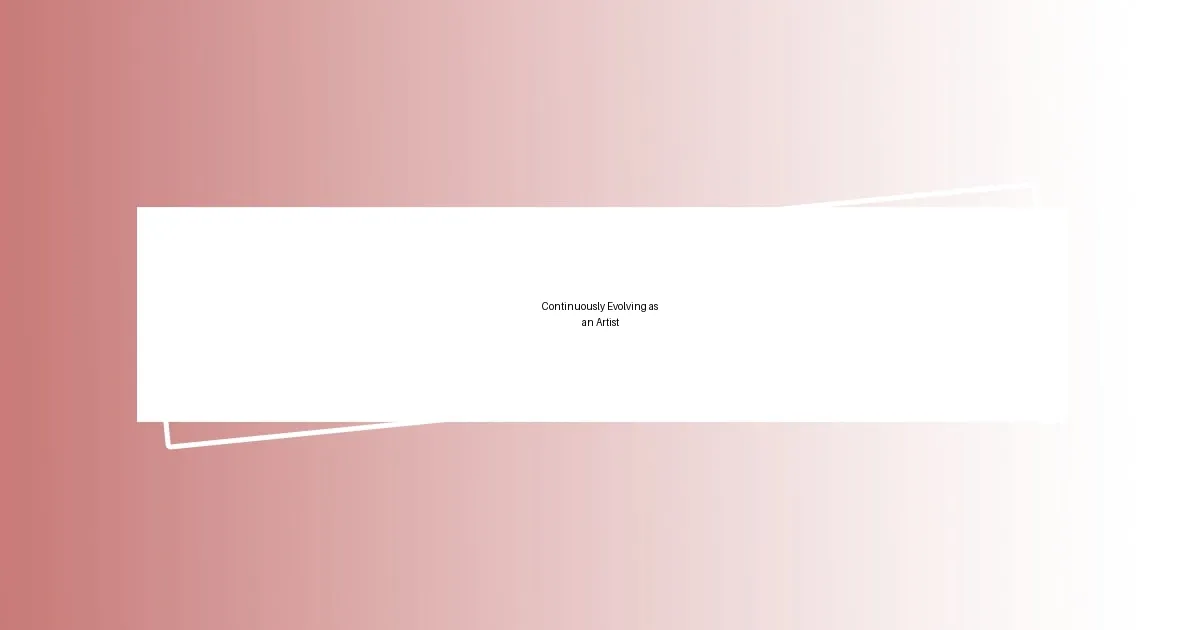
Continuously Evolving as an Artist
Embracing the journey of evolution as an artist has been pivotal in shaping my voice. I remember attending a workshop where we were encouraged to experiment with mediums we had never tried before. At first, it felt daunting—splashing paint and getting my hands messy. Yet, this freedom opened new doors for creativity I never knew existed, revealing unexpected textures and forms that sparked joy. Have you ever taken a chance on a medium that completely transformed your work?
As I reflect on my artistic evolution, I recognize that growth often comes from stepping out of my comfort zone. I once participated in a collaborative art project, working alongside artists with vastly different styles. Initially, it was intimidating to combine my work with theirs, but the experience taught me to appreciate diverse perspectives, which in turn enriched my own practice. Do you find that collaboration pushes you to think differently about your art?
The feedback I receive from peers continues to shape me in profound ways. I recall an instance where a fellow artist suggested I try abstracting my shapes. At first, I resisted—the idea felt foreign. Yet, after some exploration, I realized how liberating it was to let go of strict representation. This shift transformed my approach, allowing me to infuse emotion directly into my pieces. How has outside feedback influenced your artistic journey?
